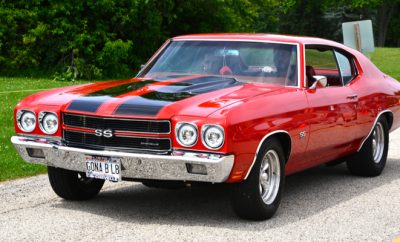Best Muscle Cars
Storing a Classic Muscle Car? Avoid These 6 Common Mistakes

Everyone knows that you shouldn’t store a classic car on the driveway or, worse, on the street in front of your house. It doesn’t take much for these pieces of automotive history to disappear.
Gone in 60 Seconds — both versions — got that much right — but storing it in a space that isn’t designed for automotive storage isn’t going to do you any favors either. If you’ve got a classic muscle car in your collection, make sure you’re avoiding these common storage mistakes.
Starting the Engine
If you ask your dad or grandfather what you need to do to store your muscle car, the first thing they’ll probably tell you to do is start the engine every couple of weeks. This might sound like a wise step, but if you’re planning to store your car for long periods, prepping it and leaving it alone while it’s in storage will help protect it better in the long term.
Running the engine for a few minutes every couple of weeks isn’t long enough to burn off the moisture that could end up in the crankcase. If you’re not going to drive the car and take it out of storage, don’t start the engine.
Ignoring the Oil
Contrary to popular belief, oil isn’t going to go bad while you keep your car in storage. Oil has a shelf life of around six months before it needs replacement. If you changed the oil before putting the car in storage, you don’t need to do anything about it until you decide to drive it again.
If you’re planning to store the vehicle for longer than six months, consider investing in some oil additives to extend its functionality until you start driving it again.
Forgetting Climate Control
Storing your classic car in your garage is a great way to keep it safe, but it isn’t the perfect solution. Most garages aren’t attached to the home’s HVAC system, so nor are they insulated to keep them temperate or comfortable.
This means that while your classic car might be protected from the weather, it is still at risk of exposure to extreme temperatures and humidity. If you’re planning to store your car in your attached garage, take the time to hook it up to your home’s HVAC, have it insulated, or invest in other climate control tools to manage temperature and humidity.
Not Cleaning Your Garage
How messy is your garage right now? Is it so full of junk that you can’t see the floor? Maybe you’ve cleared enough space to park your car, but that’s it, leaving all the trash stacked to the ceiling along the walls.
It might seem like common sense, but don’t squeeze your classic car in amongst the junk. If you’re planning to use your attached garage for long-term storage, make sure that you’re turning it into a dedicated storage space.
Forgetting the Fuel
Fuel does not have an unlimited shelf life. Without a stabilizer to extend its lifespan, gasoline will begin to degrade in three to six months, while diesel can last up to 12 months before it causes problems.
If you’re planning to store your classic car for long periods, make sure you add a fuel stabilizer to your tank before you put the vehicle in storage. Fuel stabilizers can extend gasoline’s shelf life to 24 months.
Leaving the Tires On the Ground
If your tires aren’t rolling, they could potentially develop a flat spot, making them dangerous to drive on. If you’re planning to store your car for long periods, get it off the ground. Jack it up and set it on jack stands. Once you have the vehicle off the ground, remove a bit of air from the tires. This helps protect the rubber if high or low temperatures cause the air inside to expand or contract.
Protect Your Investment
Keeping a classic muscle car in your collection comes with a lot of work. You’re responsible for maintaining a piece of automotive history, and sometimes that means putting it in storage when using it as a daily driver isn’t feasible. This is especially true if you live somewhere that sees a lot of snow — and thus many salted roads — in the winter. Salt is the bane of any car owner’s existence, but it can be truly devastating for classic muscle cars.
Having a good storage plan in place can go a long way toward protecting your investment. An attached garage can be a viable storage option, but it will need a bit of prep before it’s ready to protect your favorite muscle car from the elements.









0 comments